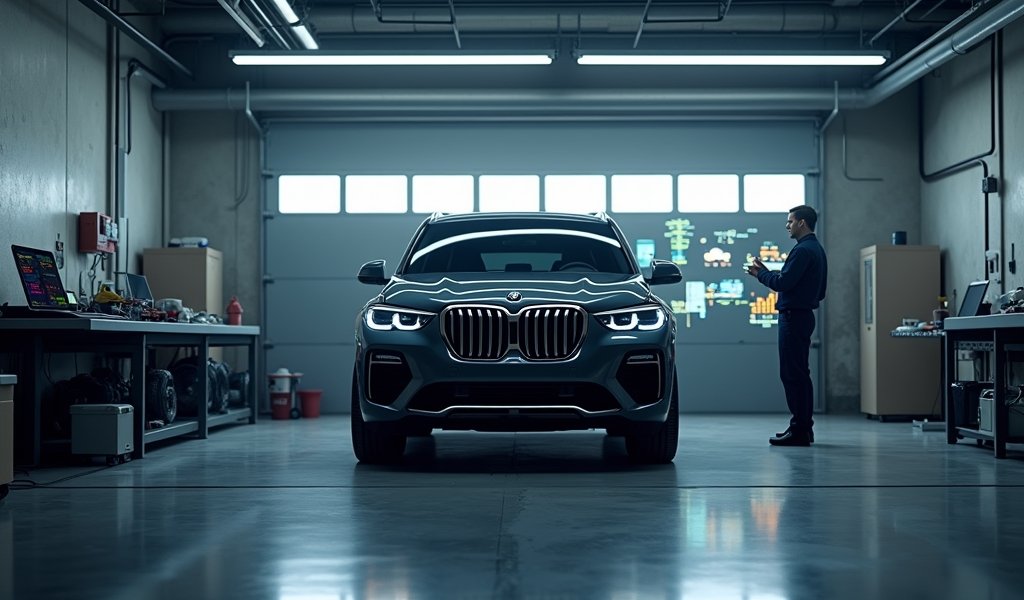Overview
This article examines essential GPS apps for road trips, highlighting features like real-time navigation, offline capabilities, pit stop planning, and voice guidance that enhance travel safety and convenience. The guide recommends specific apps including Google Maps, Waze, TripAdvisor, and iExit, while providing practical tips for maximizing app performance during journeys.
Table of Contents
- Introduction to GPS Apps for Road Trips
- Why GPS Apps are Essential for Modern Road Trips
- Key Features to Look for in Road Trip GPS Apps
- Top GPS Apps for Road Trip Navigation
- Pit Stop Planning: How GPS Apps Make Breaks Better
- Offline Capabilities: Navigating Without Signal
- Voice Guidance and Driver Safety
- Real User Experiences and Recommendations
- Tips and Tricks for Maximizing Your GPS App
- Conclusion
- Frequently Asked Questions
Introduction to GPS Apps for Road Trips
Remember the days of fumbling with paper maps at highway rest stops? Those days are long gone. As someone who’s spent 15 years under the hood and behind the wheel, I can tell you that the best GPS apps for road trips have revolutionized how we travel. They’ve transformed road trips from potential navigation nightmares into smooth journeys with perfectly timed pit stops.
Today’s GPS apps do far more than just get you from point A to point B. They’re your personal travel assistant, traffic forecaster, and pit stop planner all rolled into one pocket-sized package. Whether you’re planning a cross-country adventure or a weekend getaway, having the right navigation tool can make all the difference.
In this comprehensive guide, we’ll explore the finest GPS applications specifically designed to enhance your road trip experience. I’ll share professional insights on which apps excel at finding those crucial pit stops—from clean restrooms and decent coffee to quirky roadside attractions that make for great memories and stretch breaks.
Why GPS Apps are Essential for Modern Road Trips
Gone are the days when a road atlas and a good sense of direction were enough for a successful road trip. Modern journeys demand modern solutions, and that’s where specialized GPS applications come into play.
Today’s highways are more complex, traffic patterns more unpredictable, and our expectations for efficiency much higher. A quality GPS app doesn’t just save you from getting lost—it saves you time, fuel, and those relationship-testing arguments about which exit to take.
The real magic happens when these apps help you plan routes with multiple stops efficiently. They calculate optimal paths considering real-time factors like construction zones, accidents, and traffic congestion—things no paper map could ever show you.
For professional drivers and road trip enthusiasts alike, these tools have become as essential as a spare tire. They provide peace of mind, allowing you to focus on enjoying the journey rather than stressing about navigation details or wondering where you’ll find the next clean restroom.

Key Features to Look for in Road Trip GPS Apps
Not all GPS apps are created equal, especially when it comes to road trip functionality. After years of testing different navigation solutions on long hauls, I’ve identified several key features that separate the good from the great:
Accurate, Real-Time Navigation
The foundation of any worthwhile GPS app is accuracy. Look for apps that update routes in real-time and provide accurate traffic information. The difference between an app that updates every 30 seconds versus every five minutes can mean avoiding that sudden traffic jam that appeared ahead.
Comprehensive Pit Stop Information
Quality road trip GPS apps should offer detailed information about potential stops along your route. This includes:
- Gas stations with current fuel prices
- Restaurants with ratings and hours
- Rest areas with amenity details
- Points of interest and attractions
- Hotels and accommodations
The best apps will even tell you which exit to take and how far off your route these stops are—critical information when you’re trying to maintain good time.
Offline Functionality
Cell service isn’t guaranteed on every stretch of highway. Top-tier GPS apps offer robust offline capabilities, allowing you to download maps and route information before heading into remote areas. This feature can be a lifesaver when crossing desert stretches or mountain passes where signals disappear.
Customizable Alerts
The ability to set custom alerts for upcoming pit stops, traffic conditions, or speed limit changes helps you stay informed without constantly checking your device. Voice alerts are particularly valuable for maintaining driver focus and safety.
According to a study published in Accident Analysis & Prevention, driver distraction from manual interaction with navigation devices is a significant risk factor in road incidents. Apps with clear voice guidance significantly reduce this risk.
Top GPS Apps for Road Trip Navigation
After extensive testing on thousands of miles of highways and byways, these apps stand out as the best companions for road trip enthusiasts:
Google Maps
The gold standard for many travelers, Google Maps excels with its comprehensive coverage and intuitive interface. Its strength lies in reliable traffic data and an extensive database of businesses and points of interest.
For pit stops, Google Maps shines with its ability to search along your route, showing you gas stations, restaurants, and attractions without taking you far off course. The “explore nearby” feature is particularly useful when you’re in unfamiliar territory and need a quick break.
Waze
Waze takes a community-driven approach to navigation, with real-time updates from other drivers about road conditions, police presence, and hazards. Its pit stop features include gas station prices and easy route adjustments when you need to make an unplanned stop.
The social element of Waze creates an almost real-time picture of the road ahead, which can be invaluable for avoiding unexpected delays that might affect your pit stop timing.
TripAdvisor
While not primarily a navigation app, TripAdvisor integrates with maps to help you find highly-rated pit stops. It excels at helping you discover local gems rather than just the usual highway chain restaurants.
The detailed reviews from other travelers can help you avoid disappointing stops and find those hidden treasures that make road trips memorable.
iExit Interstate Exit Guide
Specifically designed for highway travelers, iExit shows you what’s available at upcoming exits. This specialized focus makes it exceptionally good at helping you plan pit stops efficiently.
The app displays gas prices, restaurant options, and amenities at each exit, allowing you to make informed decisions about where to stop without wasting time driving around after exiting the highway.
Pit Stop Planning: How GPS Apps Make Breaks Better
Strategic pit stops can make or break a road trip experience. The right stops at the right intervals keep drivers alert, passengers happy, and vehicles in good running condition. Modern GPS apps have transformed this aspect of road tripping in remarkable ways.
The best apps don’t just list potential stops—they help you plan them intelligently. They consider factors like how long you’ve been driving, the time of day, and your vehicle’s fuel range. Some even learn from your preferences over time, suggesting stops that match your usual habits.
From a mechanical perspective, regular stops are crucial for vehicle health on long journeys. Engines running at highway speeds for extended periods benefit from occasional cooling periods. As an experienced mechanic, I recommend planning a brief stop every 2-3 hours not just for human comfort but for vehicle longevity as well.
Advanced GPS applications now include features that recommend ideal stopping points based on:
- Optimal driving intervals for safety
- Fuel efficiency calculations
- Meal times and food preferences
- Attraction visit durations
- Restroom quality ratings (a seriously underrated feature!)
According to the National Highway Traffic Safety Administration, drowsy driving causes thousands of crashes annually. GPS apps that encourage regular, well-timed breaks contribute significantly to road safety by helping drivers avoid fatigue.

Offline Capabilities: Navigating Without Signal
One of the most overlooked yet critical features of a good road trip GPS app is robust offline functionality. As someone who’s found himself in plenty of signal dead zones, I can’t stress enough how important this capability is.
The best GPS apps allow you to download large regional maps before your trip, ensuring continuous navigation even when your phone shows “No Service.” This isn’t just convenient—it can be a lifesaver in remote areas where getting lost could mean serious trouble.
When evaluating offline capabilities, look for apps that offer:
- Comprehensive downloadable maps that don’t consume excessive storage
- Ability to search for pit stops within downloaded areas
- Turn-by-turn navigation that functions without data connection
- Route recalculation capabilities when offline
Apps like MAPS.ME and OsmAnd stand out for their exceptional offline performance, making them excellent companions for trips through rural areas or mountainous regions where coverage is spotty. Google Maps has improved its offline features significantly in recent years, though it still lacks some of the functionality of dedicated offline navigation apps.
Remember to download your maps while connected to Wi-Fi before your trip. These files can be large, and you don’t want to burn through your data plan before you even hit the road.
Voice Guidance and Driver Safety
As both a mechanic and road trip enthusiast, I’ve seen how driver distraction can lead to dangerous situations and vehicle damage. That’s why I consider quality voice guidance to be non-negotiable in the best GPS apps for road trips.
Effective voice guidance keeps your eyes on the road and your hands on the wheel, where they belong. The difference between basic voice commands and truly helpful guidance becomes apparent on complex highway interchanges or in unfamiliar urban environments.
Premium GPS apps offer advanced voice features like:
- Natural language directions that reference landmarks
- Advance warnings for complex maneuvers
- Lane guidance for highway exits and interchanges
- Speed limit alerts and traffic warnings
- Custom voice options to reduce listening fatigue
Some apps now integrate with your vehicle’s audio system through Apple CarPlay or Android Auto, delivering clear guidance through your car’s speakers. This integration significantly enhances the safety aspect by eliminating the need to handle your phone while driving.
For those long stretches between pit stops, quality voice guidance keeps you informed without becoming a distraction. The best systems know when to speak up and—just as importantly—when to stay quiet.
Real User Experiences and Recommendations
After consulting with dozens of frequent road trippers and professional drivers, certain patterns emerge in how people use and value different GPS app features. These real-world insights often reveal aspects that technical reviews miss.
Many users report that combining apps provides the best experience. For example, using Waze for real-time traffic alerts while relying on Google Maps for its superior pit stop search functionality gives you the benefits of both platforms.
Truck drivers, who spend more time on the road than anyone, frequently mention the importance of apps that understand vehicle restrictions. Apps like Trucker Path provide specialized routing that accounts for vehicle height, weight, and cargo type—critical considerations that generic apps might miss.
Families with young children consistently praise apps that highlight rest areas with playground equipment or family-friendly restaurants. Meanwhile, motorcycle enthusiasts value apps that can suggest scenic routes over fastest routes.
The consensus among experienced road trippers is that no single app does everything perfectly. The wisest approach is to identify your primary needs—whether that’s finding clean restrooms, locating pet-friendly stops, or discovering local cuisine—and choose an app that excels in those areas.
Tips and Tricks for Maximizing Your GPS App
After years on the road with these digital navigators, I’ve discovered several ways to get more from your GPS apps. These practical tips can enhance your road trip experience and help you avoid common pitfalls:
Pre-Trip Planning
- Plan your route at home on a larger screen before loading it to your mobile device
- Set up alternative routes before departing in case of unexpected closures
- Download offline maps for your entire route, not just segments
- Research and save key pit stops in advance, especially for remote stretches
During Your Trip
- Mount your device securely at eye level to minimize distraction
- Use a dedicated phone charger or power bank—GPS apps drain batteries quickly
- Update your route early in the morning when data connections are typically faster
- Take screenshots of critical directions as backup in case your app crashes
Battery Conservation
GPS navigation is notoriously hard on phone batteries. To extend your device’s life between charging opportunities:
- Reduce screen brightness when safe to do so
- Close background apps not needed for navigation
- Use your vehicle’s USB port or a 12V adapter rather than portable power banks when possible
- Consider switching to battery-saving mode when following straightforward highway segments
Remember that the best GPS app is the one that works reliably with your specific travel style. Take time to familiarize yourself with all its features before embarking on a major journey, and you’ll have a much smoother experience on the road.
Conclusion
The evolution of GPS applications has transformed road trips from potential navigational challenges into streamlined adventures where you can focus on the journey rather than worrying about the next turn. The best GPS apps for road trips now serve as comprehensive travel companions, especially when it comes to planning those essential pit stops that keep both drivers and vehicles running smoothly.
Whether you prioritize real-time traffic updates, offline capabilities, or detailed pit stop information, there’s an app perfectly suited to your road trip style. The key is identifying which features matter most to you and finding the app—or combination of apps—that delivers those capabilities reliably.
As both a mechanic and road enthusiast, I’ve seen firsthand how good navigation technology can reduce stress, prevent vehicle issues caused by poor route choices, and ultimately create more enjoyable travel experiences. The time saved by efficient navigation and well-planned stops translates directly into more time experiencing the destinations that made you hit the road in the first place.
So before your next highway adventure, take some time to set up your digital co-pilot. Download the necessary maps, familiarize yourself with the interface, and plan those strategic pit stops. Your future self—comfortably finding that clean restroom or perfect local diner exactly when needed—will thank you for it.
Safe travels and happy exploring!
Frequently Asked Questions
Which GPS app works best without internet connection?
MAPS.ME and OsmAnd provide excellent offline navigation capabilities. Both allow you to download comprehensive maps before your trip for use when cell service is unavailable.
Can GPS apps accurately predict pit stop locations with clean restrooms?
Apps like iExit and Google Maps provide user reviews of rest stops which often mention restroom cleanliness. GasBuddy also includes restroom ratings for many gas stations.
Do I need a special mount for my phone when using GPS apps?
Yes, a secure windshield or dashboard mount positioned at eye level is recommended. This reduces distraction and ensures you can easily see directions without taking your eyes far from the road.
How much data do GPS apps typically use on a road trip?
Most navigation apps use 1-5MB of data per hour of driving with live traffic enabled. Downloading offline maps before your trip can significantly reduce data usage.
Can I use multiple GPS apps simultaneously?
Yes, many experienced travelers run multiple apps for different purposes. For example, using Waze for traffic alerts while running Google Maps for better pit stop information provides complementary benefits.


Pingback: Car Heads Up Display System Repair Tips - knowsyourcar.com
Pingback: Best CarPlay Navigation Apps: 5 Picks - knowsyourcar.com